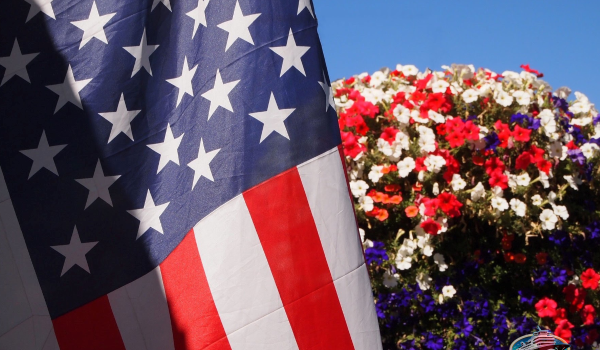Celebrating Women Who Keep the Cape May – Lewes Ferry Sailing
At the Cape May–Lewes Ferry, women play a vital role in every part of our operation — from the bridge to the engine room, and from guest services to administration. Whether they come from maritime academies or discover their passion through hospitality, women at the Ferry are proving that meaningful, long-term careers on the water are within reach.
For decades, the maritime industry was considered a male-dominated field. Today, that tide has changed. At the Ferry, women are thriving as Captains, Engineers, Mechanics, Managers, and Mates, breaking barriers and inspiring the next generation to pursue rewarding maritime and technical careers.
From the Dock to the Bridge: Paths to Leadership
Some team members, like Captains Sharon Urban and Melissa Velli, began in food service before moving to the marine crew and working their way up to command positions — a hands-on career path known as hawsepiping. Others, like Captain Meghan Palmer, are maritime academy graduates who combine technical education with leadership at sea.
The Ferry’s environment offers unique advantages: a supportive crew culture, competitive pay and benefits, and a schedule that allows team members to balance work and home life — something rare in the maritime world.
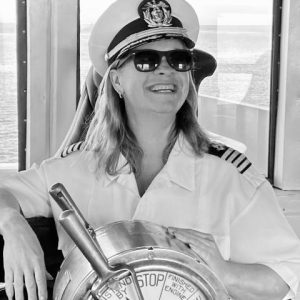
Building Careers Beyond the Helm
Opportunities for women at the Ferry extend far beyond sailing. Leaders like Jennifer Shivers, Assistant Director of Ferry Operations, began in customer service and rose through management by applying her expertise in hospitality and operations. In the engine room, Jaimie Sullivan advanced from galley supervisor to QMED/Oiler, supported by DRBA training grants and mentorship.
From operations and engineering to customer experience and safety, every role contributes to keeping our vessels moving and our passengers smiling.
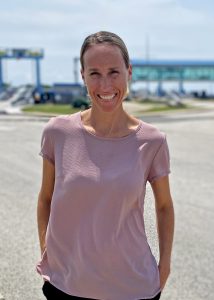
The Future is Female — and Ferry Strong
Today, more women than ever are charting maritime careers on the Delaware Bay. The Ferry continues to encourage growth through training, certification programs, and tuition assistance — empowering women to explore new opportunities both on land and at sea.
Whether you’re looking to start as a deckhand, marine mechanic, or customer service professional, your next career could begin right here at the Cape May–Lewes Ferry.
FAQ: Women in Maritime Careers
Women have long contributed to maritime history, but today’s opportunities are broader, more accessible, and more rewarding than ever. At the Cape May–Lewes Ferry, women serve as Captains, Engineers, Mates, terminal leaders, and skilled crew members shaping the future of marine transportation. This brief FAQ highlights the progress women have made, the paths available today, and the inspiring possibilities awaiting those considering a career on the water.
When did women first begin serving in maritime roles in the United States?
Women have contributed to maritime work for centuries, but formal access to maritime careers began in the mid-20th century. The U.S. Merchant Marine Academy admitted its first women in 1974, following changes in federal law, and maritime academies nationwide soon followed. Before this milestone, women often worked informally aboard family vessels, in wartime support roles, or in administrative capacities — but were excluded from most licensed maritime positions. The 1970s marked a turning point that opened training, licensure, and seagoing careers to women across the country.
What challenges did early women mariners face in training and at sea?
Pioneering women encountered significant hurdles, especially during the first years of integration at maritime academies. Reports from the 1970s and 1980s describe hazing, isolation, unequal treatment, and a lack of basic accommodations for women. Many had to work harder to prove their competence in a historically male-dominated culture. Yet despite these barriers, early female cadets and licensed officers persisted — and their determination set the stage for today’s increasingly inclusive maritime environment.
Are women represented in leadership roles within the maritime industry today?
Yes — and the number continues to grow. Women now serve as Captains, Pilots, Chief Engineers, Port Captains, Terminal Managers, and senior administrators across the U.S. maritime sector. At the Cape May–Lewes Ferry specifically, women hold multiple leadership roles across operations, engineering, customer service, and the bridge. The Ferry’s permanent women Captains are among the most visible examples of women succeeding at the highest levels of vessel command in the passenger-ferry world.
What career paths are available for women entering the maritime field today?
Women entering maritime careers can choose from a wide range of opportunities — both aboard the vessels and shoreside. Paths include Ordinary Seaman, Able-Bodied Seaman, Mate, Captain, Marine Engineer, QMED/Oiler, Port Engineer, Terminal Management, Maritime Logistics, Safety & Compliance, Dispatching, and more. Many women begin by “hawsepiping” — working their way up from entry-level positions — while others pursue degrees through maritime academies. Today’s industry offers clearer advancement pathways, more supportive training environments, and growing networks for mentorship and professional development.
Upcoming Events
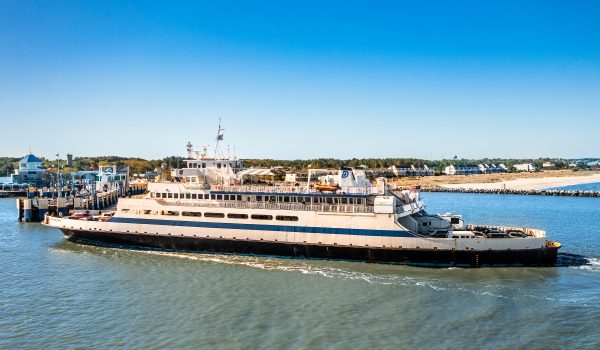
Public Hearing on Proposed Cape May–Lewes Ferry Fare Changes

Cruise with Santa

Lucky 7 Hard Rock Casino

Cape May Zoo Excursion
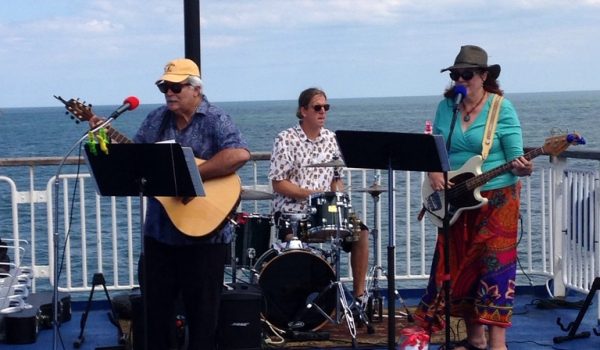
Sunday Jamz Cruises
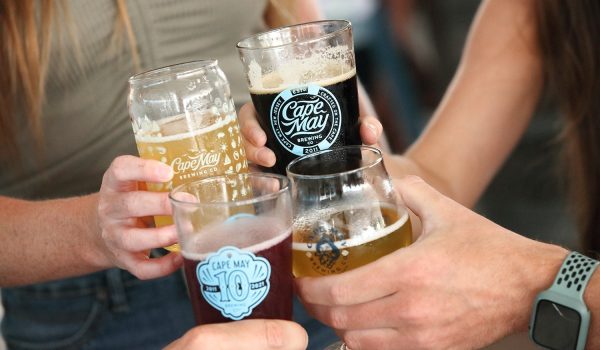
Brewery Shuttle Excursions: Cape May
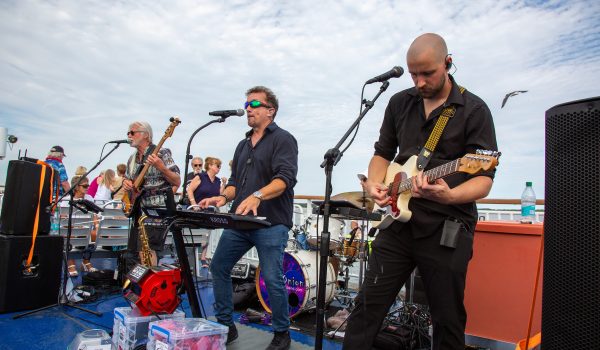
Rock the Boat | Summer 2026

Grain’s Rocking The Docks: Waterfront Concerts in Lewes
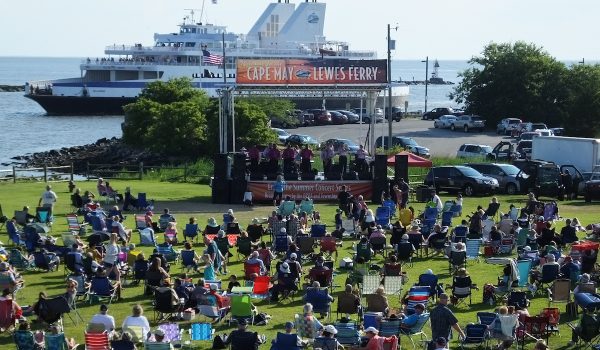
Wednesday Night Concert Series: Cape May
